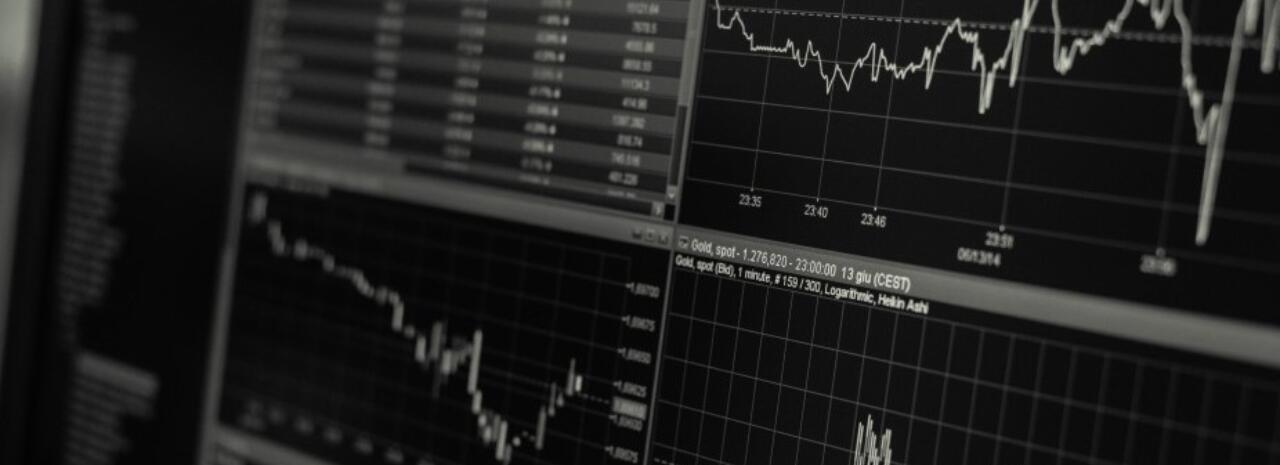
Glass half full or half empty: How Do Stories Affect Economic Value?
6 August 2020
COVID-19
Those of us lucky enough to have savings during the global health pandemic have been put through a financial rollercoaster over the last few months. From a behavioural perspective, the global economic lockdown has made sticking to a well-diversified portfolio difficult: while we watch our efficiently allocated portfolios take a hit, our risk-seeking peers take concentrated positions in video-conferencing stocks and watch their wealth soar.
As if this behavioural temptation wasn’t hard enough to overcome, looking to experts is also fraught with uncertainty: few economists who are able to unpack unprecedented macroeconomic policy have any training in epidemiology; and few epidemiologists who are able to model the progression of COVID-19 have any training in economics.
Amidst all the temptation and confusion, how do we make sure that we stick to our financial plan and ride out the financial rollercoaster? Behavioural economists make a living out of identifying behavioural biases likely to lead people astray in any decision-making context and in this context there is one such bias to be aware of: the framing effect.
The framing effect: Glass half empty or half full?
As Nobel Prize winning economist Robert Shiller notes in his recent book, Narrative Economics, we construct stories even when we have objective, empirical data to base our decisions on. The way we frame these observable facts can drastically alter our perception of value: a diet soft drink with 5% fewer calories and a nearly identical taste to the original seems like a no-brainer; but a diet soft drink with 95% as many calories and a taste that just isn’t quite as good as the original seems pointless. As this example shows, the narrative you endorse can either inflate or suppress perceived value.
How does the Framing Effect Inflate and Suppress Value?
The recent WireCard scandal, in which the German firm admitted it had a mind-boggling 1.9bn euro hole in its accounts, is a good example of how the framing effect works to inflate financial value. Discrepancies had been flagged by short sellers and whistleblowers years before WireCard’s collapse last month. These were largely dismissed in a narrative saying that short sellers were simply conspiring against the firm. As The Economist recently wrote: “Wirecard’s rise and fall is a case study in the carnage possible when a firm’s accounting goes awry but national regulators and big investors are so seduced by the company’s narrative that they cannot, or will not, see it” (emphasis added).
On the other hand, the world is currently in no shortage of narratives that suppress value. Take, for example, the narrative that the current crisis is ‘unprecedented’. This serves to increase perceived uncertainty, which, in turn, decreases perceived value. The facts suggest that the current crises isn't as 'unprecedented' as we think. The world has been through a few large pandemics and a few would-be pandemics which have provided valuable lessons for the COVID-19 outbreak. The use of face masks, for example, is a practice borrowed from previous health crises.
The narrative of the "unprecedented" crisis
Notice that this is not to reduce the cause of the current crisis, which is having a very real effect on billions of people’s lives, to a misguided narrative. The point is that the unprecedented feeling that accompanies this crisis does not make it different: over time, unprecedented crises are normal. It is worth getting a sense of how ‘normal’ these crises are. A 2018 paper by Goetzmann & Kim recorded 1032 events in which a market somewhere in the world declined by more than 50% over a 12 month period between 1692-2015. This equates to an average of 3 crashes per year. The authors note that investors typically reduce their stock holdings during these periods; yet they also note that equity returns tend to be higher in the period immediately after the crash. Given it is just about impossible to predict when the market will turn, this means investors reduce their holdings just before they can expect to earn a higher return than normal.
So back to our starting point, for those of us fortunate enough to have money tied up in investments, what's the most sensible way to ride out the financial rollercoasters of markets? This article’s 'narrative' is simple: hang in there. To invest in stock markets is to take risk. To take on risk is to be invested in markets during a significant downturn (no matter how clever you may think you are). So if you find the uncertainty surrounding your investments unbearable, this is not a sign that it’s the right time to divest your equity holdings; it’s a sign that you should consider whether you were taking on too much risk in the first place.
First published on LinkedIn